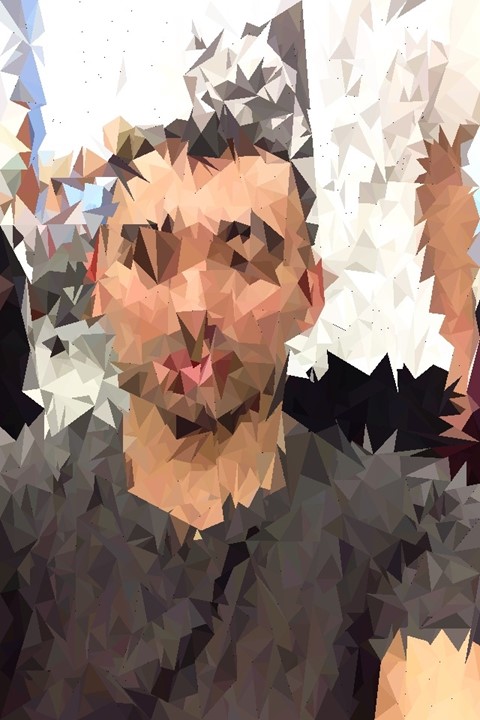Nicola Formichetti is known as one of the most creative minds in contemporary fashion. In less than ten years, he has become one of the most influential voices in art direction and design...
Nicola Formichetti is known as one of the most creative minds in contemporary fashion. In less than ten years, he has become one of the most influential voices in art direction and design: after starting as a buyer and a columnist for Dazed & Confused, he moved on to serve as fashion director, and then creative director of the magazine, also collaborating with publications including AnOther Magazine, V, and the American edition of Harper’s Bazaar, and such brands as Dolce & Gabbana, Prada, Gareth Pugh, and Alexander McQueen. Since 2009, he has served as Lady Gaga’s fashion director and, in 2010, he was appointed creative director for Thierry Mugler, a position he still holds today, alongside his long-time collaboration with the Japanese brand Uniqlo. He is also active in the editorial world, as fashion director of Vogues Hommes Japan.
How would you connect fashion to elegance?
For me, elegance isn't something you were born with, it's something you create. I think it's something you have an active part in defining for yourself by finding what inspires you. You look for it and it keeps changing. I am still trying to find out what it is.
What is the role of history and art history in your conception of fashion?
It's tradition. When I started working in fashion, Lee McQueen invited me to his office and I saw his mood board. There were so many art historical and fashion references on the board and next to it was a real dress that he had made by referring to a photo on the board. I was completely shocked and thought, is this fashion? Is it remaking what people did ages ago? When I was younger I didn't believe in it. I wanted to create everything without history, to start anew. I tried that for a few years and I ended up stuck; I couldn't do anything. Then I realised its necessary to have an awareness of history in order to move forward. I care about linking the present moment – the "now" – to the traditions of the past.
"For me, elegance isn't something you were born with, it's something you create"
Would you describe fashion as a language and a discourse, as Barthes did?
Yes. It's a way to make meaning and to express.
The word "intellectual" was coined in a time of great political distress. Does fashion have a political role? And in what way?
I think fashion can make a huge impact on politics. For example, the meat dress I made for Gaga. The day after she wore it I received both threats from activists and strong letters of support from fans saying it opened up their mind and enabled them to believe in themselves. So clearly fashion is a political issue. But I try and stay out of it.
How would you relate the concept of "fashion" to the one of "style"?
Style is something you can buy now. Style has replaced elegance. Before, I believed that style is something a person embodied. But now it's so easy to buy good style if you have the money. In five to ten years, art and fashion will be mental. Style is not just something you have, you can research it, and make it your own.
"Before, I believed that style is something a person embodied. But now it's so easy to buy good style if you have the money."
What does fashion have to do with intellectuality?
It's people like you who will give our work meaning, and that's why I surround myself with people like you. We're not doing it with the intention of being intellectual, we're doing it with our gut feeling. It's almost God-sent: we have no reason, we're just doing it. It's purely instinctive.
You serve as creative director for Mugler, and Thierry Mugler is famed for introducing performance inside of fashion. Moreover, your work as art director always plays with a strong performative tone. What part does performance play in fashion?
At the end of the day, it's only fabric; but we need the theatrical element to make people dream and fantasize about the lifestyle they're buying into. I want people, from wherever they are, to escape into another reality. That's why I'm so active in digital and on the internet. I feel that it can connect people, which is something I'm not so good at. For this show I did with Mugler, I invited young bloggers and fans. I wanted to show other people that it's possible to participate in this kind of dream.
You now work as creative director for two fashion brands, which means that you design clothes. Before, you worked as art director, which means that you selected clothes. What is the link between selecting clothes and making them?
I used to be a buyer, so it was me as a fashion fanatic, freak, shopper with a twist. I behaved like a customer. Designing, obviously, means that I want to make things that are not sellable, but desirable and a little bit difficult to reach. It’s there, but you have to force yourself to go a little bit further than that. Selecting is more practical, and designing is more fantastical. Sometimes I mix both... It’s like a therapy.
In two weeks Donatien will be interviewing the artists Elmgreen & Dragset
